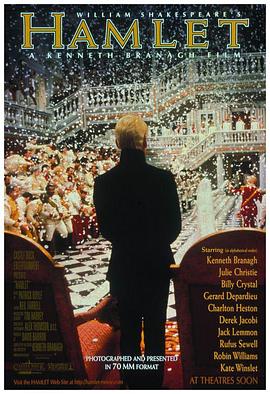丹麦王子哈姆雷特(肯尼思·布拉纳 Kenneth Branagh 饰)被传召回家参加父亲的葬礼以及自己母亲和叔父克劳迪斯的婚礼。父亲的突然离世,加上母亲的改嫁,使哈姆雷特终日郁郁寡欢。一次哈姆雷特在半夜里来到城堡高台上,与父亲的鬼魂相会,得知父王被叔父克劳迪斯毒死。鬼魂要求哈姆雷特向那个篡夺王位、霸占王妃的凶手复仇。背负了复仇任务的哈姆雷特决定用假装发疯的办法来掩饰自己,以窥探克劳迪斯的一举一动。随后他安排了一场宫廷戏,将国王被害一幕以戏剧形式表演出来。叔父看后原形毕露,而哈姆雷特却误杀了恋人(凯特·温丝莱特 Kate Winslet 饰)的父亲,导致恋人发疯死去。随后哈姆雷特的母亲也饮毒酒死亡,最终哈姆雷特愤怒杀死叔父。
